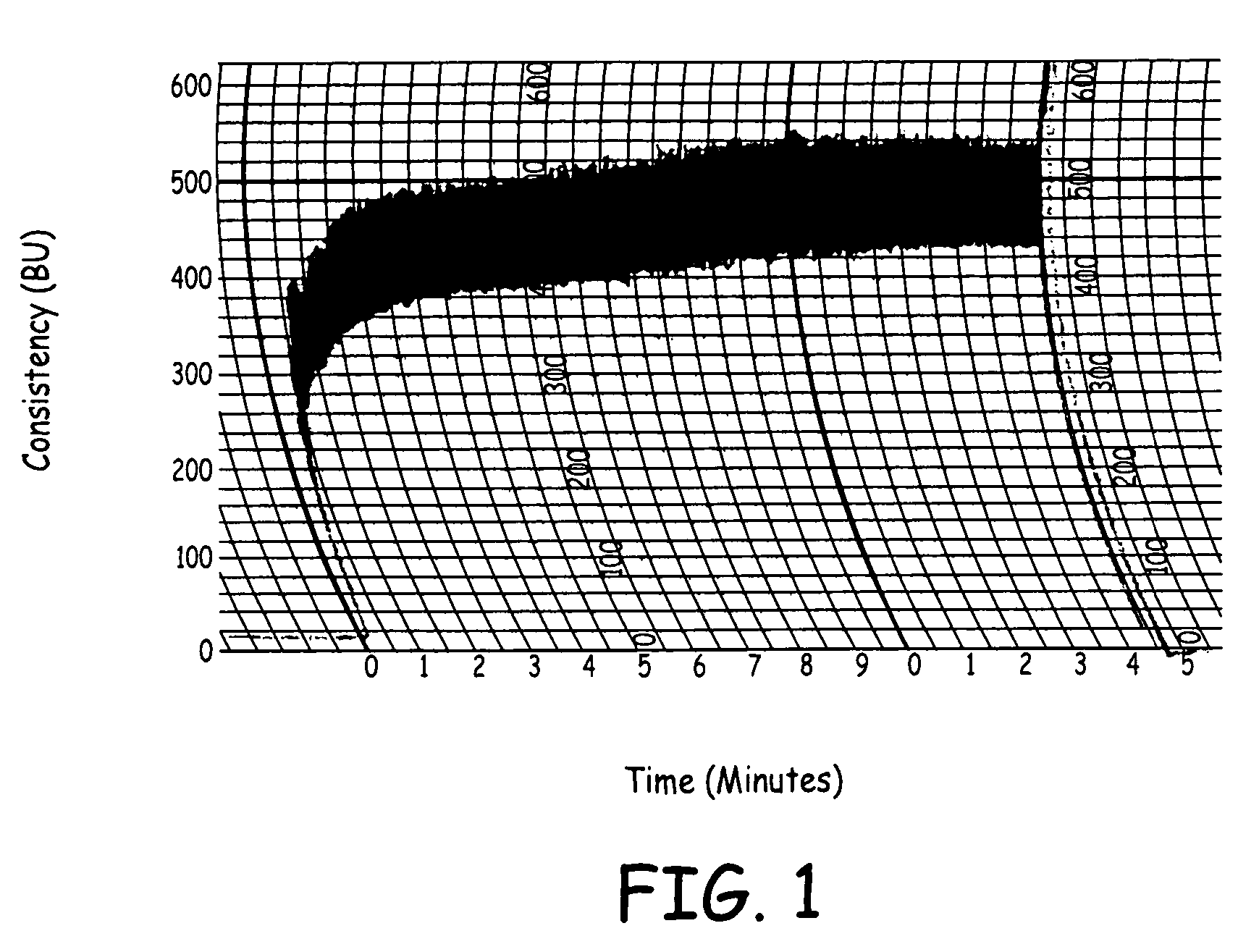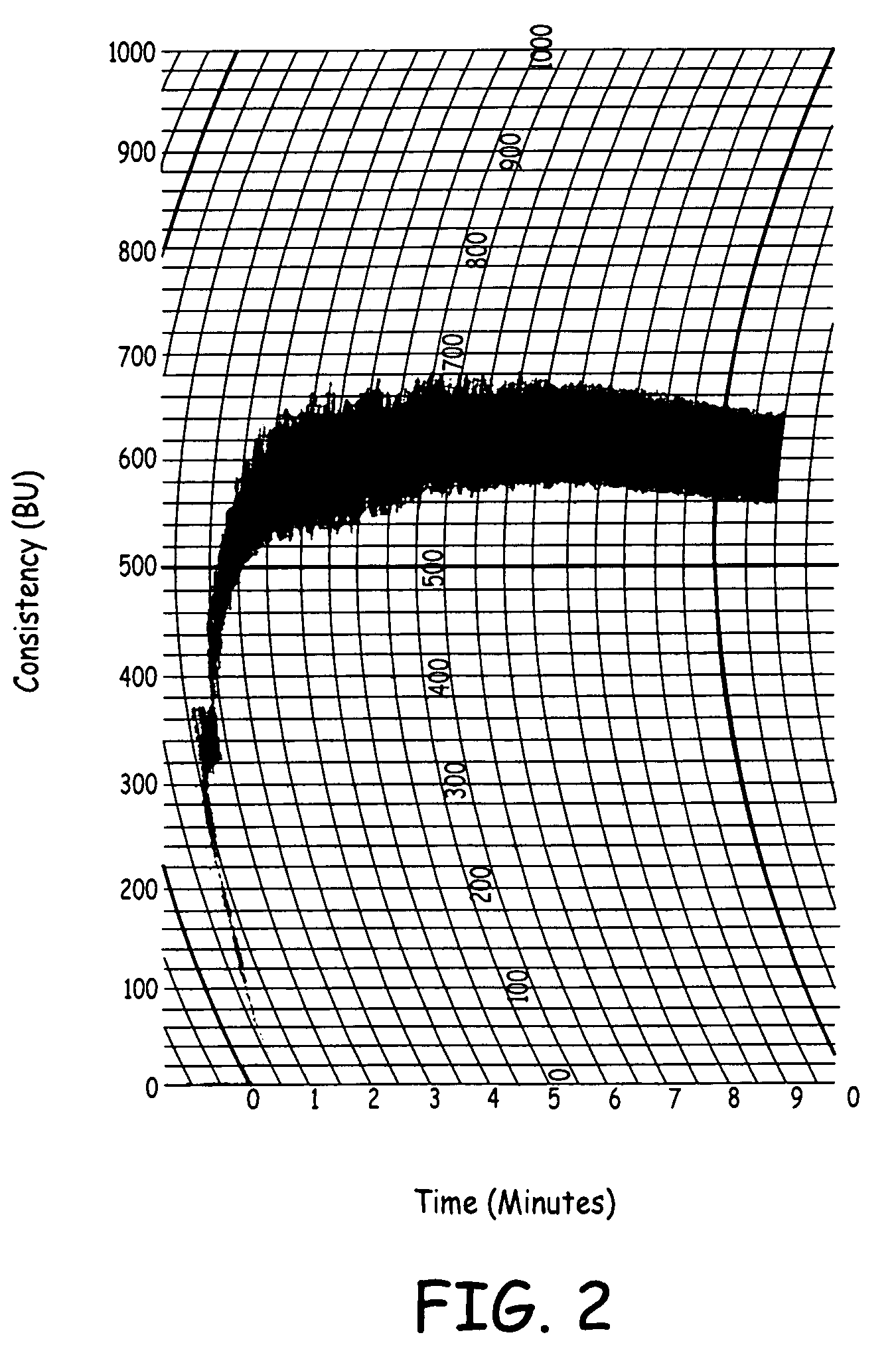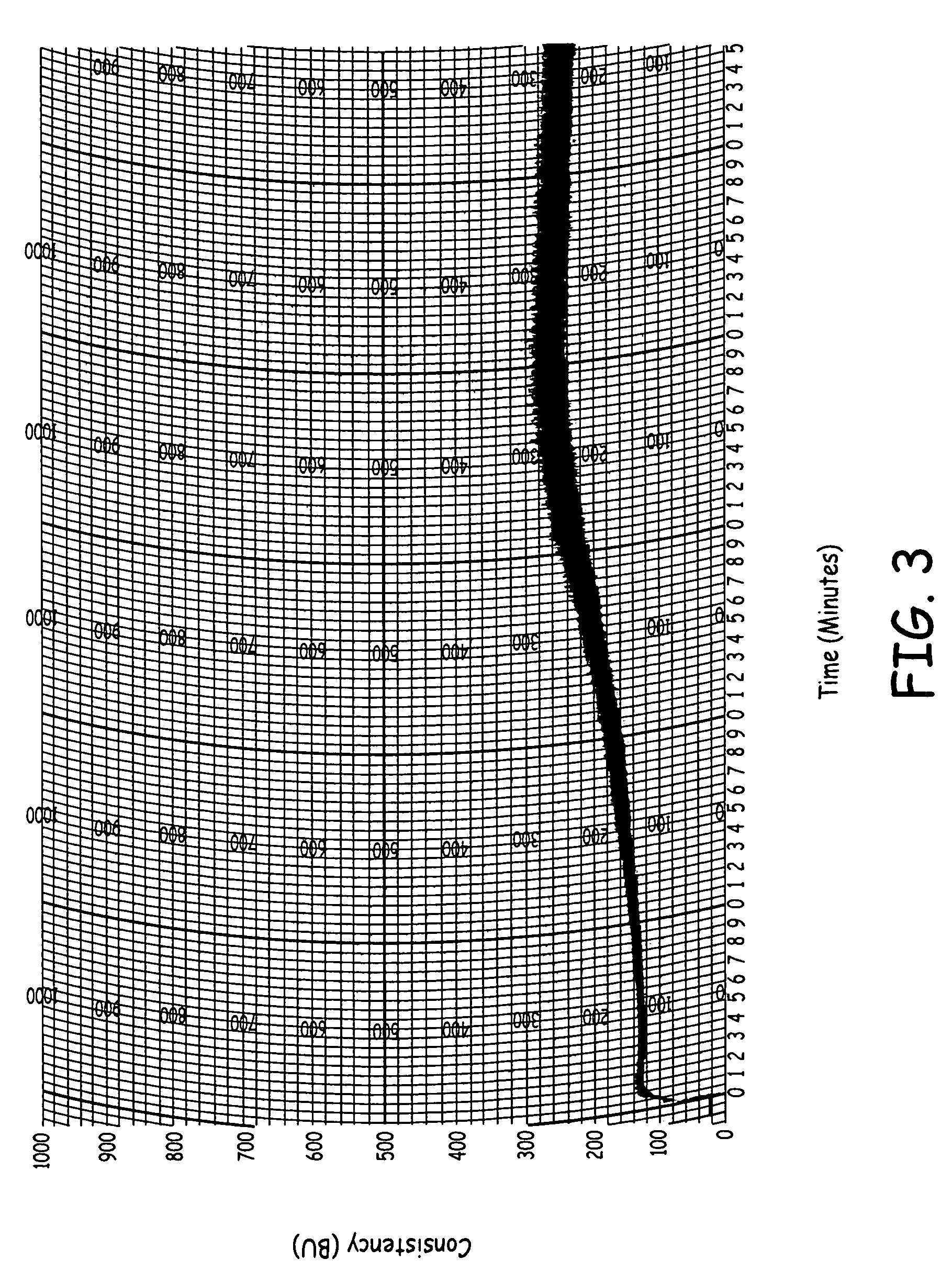Rheologically balanced high fiber ingredient for food products
a technology of high fiber and food products, applied in animal husbandry, baking, baking mixtures, etc., can solve the problems of affecting the quality of bakery products, and generally falling short of the fda requirements for specific nutrients such as protein or fiber provided per serving, and achieves the effect of high fiber conten
- Summary
- Abstract
- Description
- Claims
- Application Information
AI Technical Summary
Benefits of technology
Problems solved by technology
Method used
Image
Examples
example 1
[0050]To design a rheologically balanced high fiber premix for breads and similar products, it is first necessary to measure the effects of the various fiber ingredients on dough rheology. This is accomplished with the Farinograph® instrument. By replacing 10% of the flour in a flour-water dough with the fiber ingredient and maintaining absorption at a constant level, it is possible to determine how much the rheology is affected by the various fibers relative to each other and relative to the Farinograph® curve of a reference flour (FIG. 1). Some fibers will yield doughs with higher peak Brabender Unit (BU) values (FIG. 2) than the reference flour and will hence stiffen the dough. Others yield lower peak BU values and hence plasticize the dough (FIG. 3).
Farinograph® Instrument Method
[0051]The absorption of the flour is determined using 480 g of dough. The flour moisture is on an “as is” basis. The ingredients are dry blended for 1 minute with the water being added in its entirety wi...
example 1a
[0067]This example demonstrates the effects on rheology and quality of removing inulin or aleurone from the rheologically balanced high fiber blend described in Example 1. These non-balanced premixes clearly demonstrate the effects of the single fiber ingredient on the rheological properties of the dough.
[0068]
Premix 1 Composition with Inulin Removed:VWG18%Aleurone82%
[0069]The total dietary fiber content of this premix is about 42%. To produce a “good source of fiber”-containing bread, 18% of the flour in the formula was replaced with this premix. The results are shown in FIG. 5, which shows that the Farinograph® curve is significantly higher than the reference line at 500 BU.
[0070]
Premix 1 Composition with Aleurone Removed:VWG18%Inulin-Standard82%
[0071]The total dietary fiber content of this premix is about 59%. To produce a “good source of fiber”-containing bread, 13% of the flour in the formula was replaced with this premix. The results are shown in FIG. 6, which shows that the F...
example 2
Cottonseed Fiber-Inulin Premix Composition
[0077]Using the methodology described above, another premix composition in accordance with the present invention was formulated as follows:
[0078]
Premix 2 CompositionVWG25%Cottonseed Fiber47%Inulin-Standard28%
[0079]The total dietary fiber content of this premix is about 61%. To produce a “good source of fiber”-containing bread, a manufacturer would replace 10% of the flour in the formula with this premix. To produce an “excellent source of fiber”-containing bread, the manufacturer would replace 20% of the flour in the formula with this premix. FIG. 7 shows the Farinograph® curve of a dough made with 10% of this premix and 90% flour at 65% absorption. As can be seen in FIG. 7, the dough made with this rheologically balanced premix has the desired Farinograph® curve at 500 BU.
[0080]
Premix 2 Composition with Inulin RemovedVWG28%Cottonseed72%
[0081]The total dietary fiber of this premix is 61%. To produce a “good source of fiber”-containing bread,...
PUM
 Login to View More
Login to View More Abstract
Description
Claims
Application Information
 Login to View More
Login to View More - R&D
- Intellectual Property
- Life Sciences
- Materials
- Tech Scout
- Unparalleled Data Quality
- Higher Quality Content
- 60% Fewer Hallucinations
Browse by: Latest US Patents, China's latest patents, Technical Efficacy Thesaurus, Application Domain, Technology Topic, Popular Technical Reports.
© 2025 PatSnap. All rights reserved.Legal|Privacy policy|Modern Slavery Act Transparency Statement|Sitemap|About US| Contact US: help@patsnap.com



